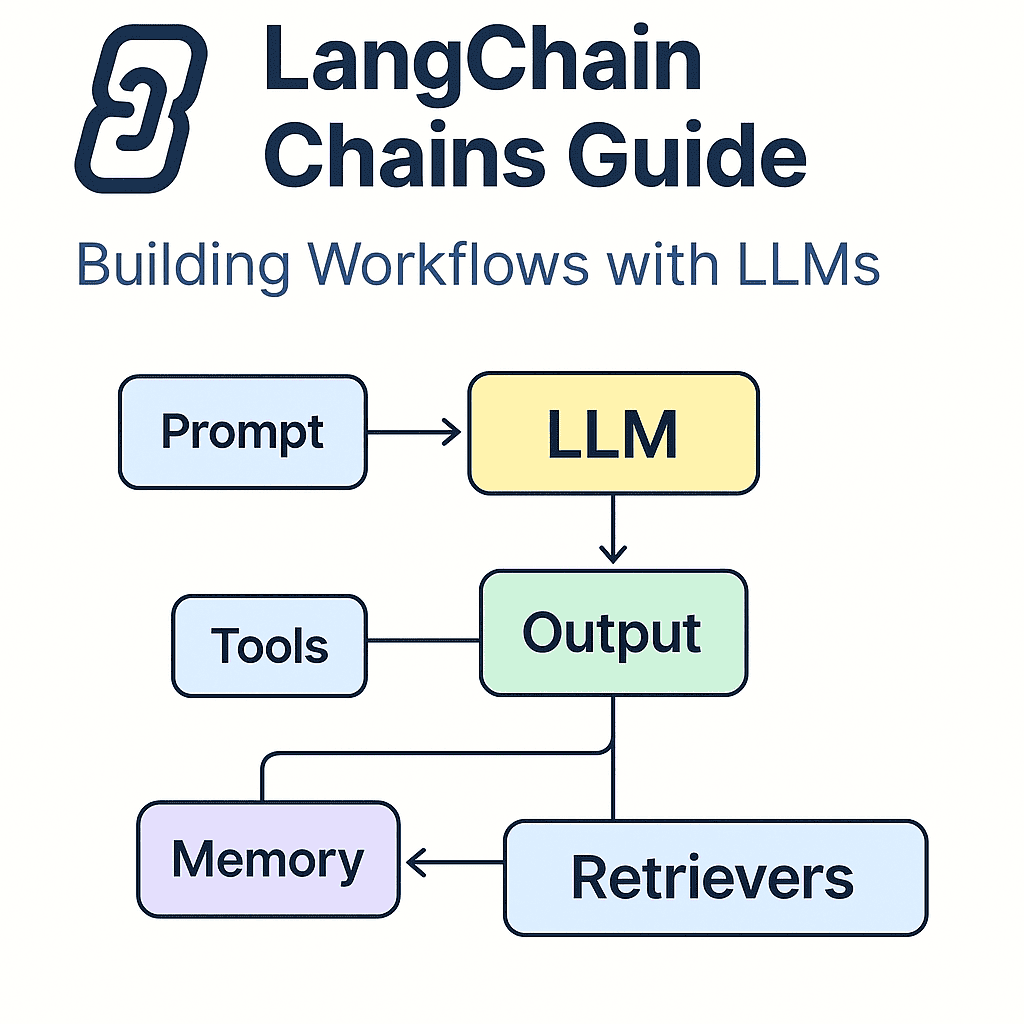
LangChain Chains: Building Workflows with LLMs
Chains are the backbone of LangChain. They allow you to compose LLM calls, tools, and memory into powerful pipelines for building real-world AI apps.
Whether you’re building a Q&A assistant, a multi-turn chatbot, or an agent that performs web searches, Chains are how you glue it all together.
⚙️ What is a Chain in LangChain?
A Chain is a sequence of steps — each powered by an LLM, a tool, or a retriever — that takes input, processes it, and returns structured output.
Common use cases:
- Prompt → LLM → Output (e.g., LLMChain)
- Question → Retriever → Context → LLM → Answer
- Input → Memory → Prompt → LLM → Response
LangChain provides built-in types like:
- LLMChain
- SequentialChain
- SimpleSequentialChain
- RouterChain
🛠️ Example: Basic LLMChain
You can build simple one-shot pipelines where the LLM transforms a single prompt into output, such as translation or explanation.
from langchain.llms import OpenAI
from langchain.prompts import PromptTemplate
from langchain.chains import LLMChain
prompt = PromptTemplate.from_template("Translate the following to French: {text}")
llm = OpenAI(temperature=0)
chain = LLMChain(llm=llm, prompt=prompt)
print(chain.run("Hello, how are you?"))Output: “Bonjour, comment ça va ?”
🔁 SequentialChain
Use this when one step’s output is the next step’s input.
from langchain.chains import SequentialChain
chain = SequentialChain(
chains=[chain1, chain2],
input_variables=["input"],
output_variables=["result"]
)Great for multi-step generation flows like: extract → summarize → translate.
🔀 RouterChain (Dynamic Routing)
RouterChain helps you direct different kinds of user inputs to the right pipeline.
Example:
classify user input type and route to a domain-specific LLM chain like code, finance, or general query.
🧠 Chains with Memory
Chains become stateful when combined with LangChain’s memory modules.
from langchain.chains import ConversationChain
from langchain.memory import ConversationBufferMemory
memory = ConversationBufferMemory()
chain = ConversationChain(llm=llm, memory=memory)This allows your assistant to remember previous interactions, making the conversation feel more intelligent and coherent.
🧱 Real-World Use Cases
- Chatbots with memory
- Dynamic interview assistants
- Product recommendation flows
- Retrieval-based Q&A (RAG)
🔗 Related Resources
🚀 TL;DR
- Chains let you structure complex LLM workflows
- Use LLMChain, SequentialChain, RouterChain depending on your logic
- Combine with memory and retrievers for more contextual intelligence
Chains are the glue that brings LangChain modules together into production-grade apps.
📍 Next up: Agents & Tools!
Enjoyed this post? Join our community for more insights and discussions!
👉 Share this article with your friends and colleagues 👉 Follow us on